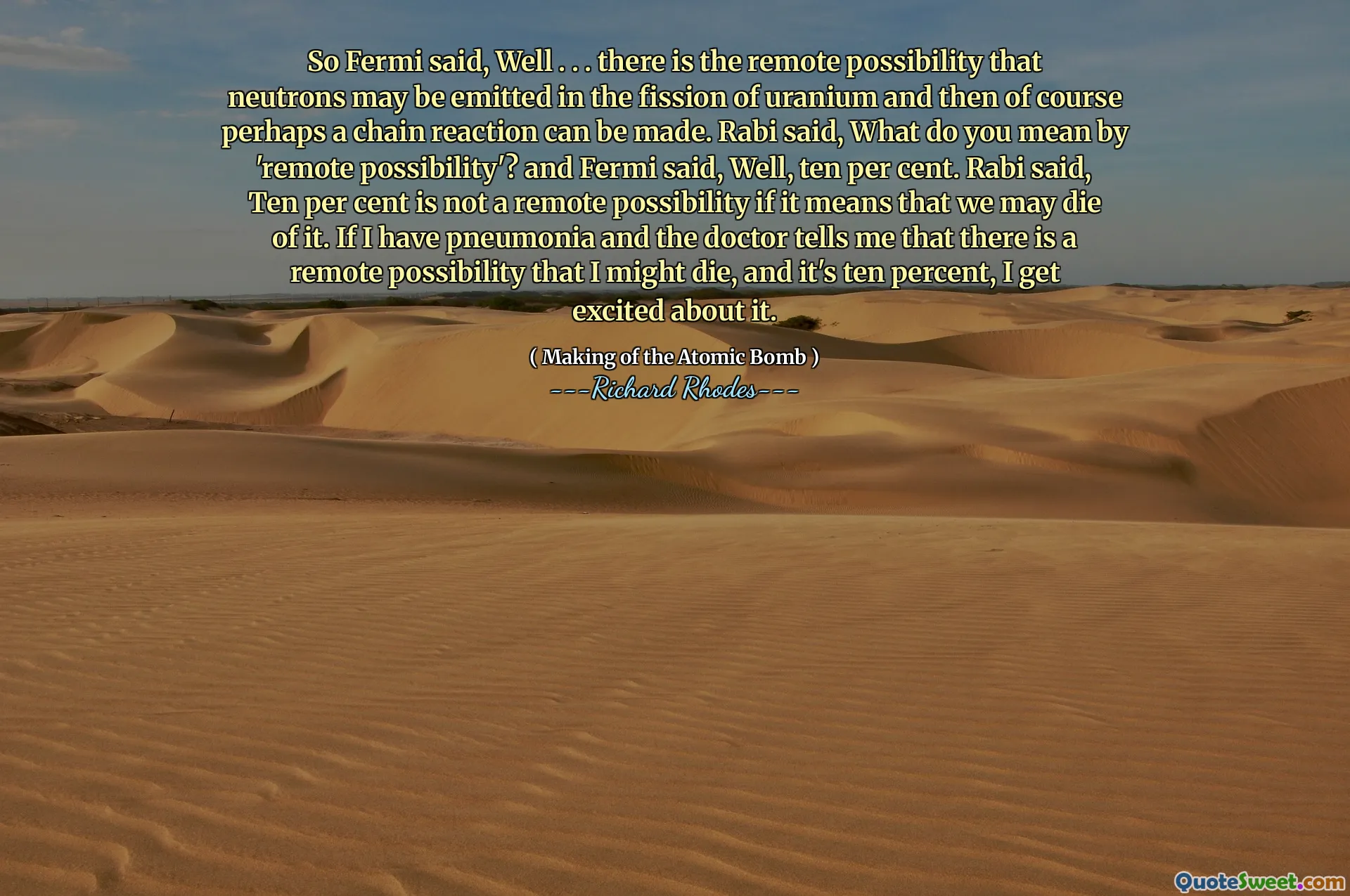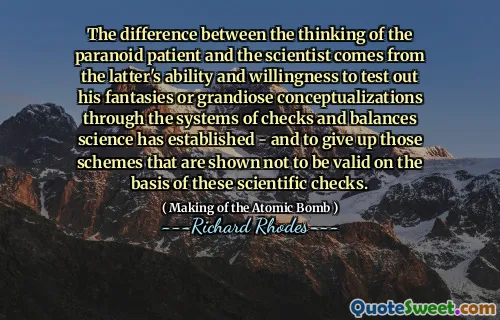
So Fermi said, Well . . . there is the remote possibility that neutrons may be emitted in the fission of uranium and then of course perhaps a chain reaction can be made. Rabi said, What do you mean by 'remote possibility'? and Fermi said, Well, ten per cent. Rabi said, Ten per cent is not a remote possibility if it means that we may die of it. If I have pneumonia and the doctor tells me that there is a remote possibility that I might die, and it's ten percent, I get excited about it.
This exchange between Fermi and Rabi highlights the profound tension between scientific discovery and its potential consequences. It captures a moment of intellectual honesty—Fermi cautiously suggesting a 'remote possibility,' which is then quantified as ten percent—a figure suddenly weighty and deeply alarming when applied to matters of life and death. It raises important questions about how scientists communicate risk and uncertainty, especially when outcomes can be catastrophic. From a broader perspective, the dialogue conveys the ethical burden that comes with scientific advancements, where a seemingly abstract probabilistic statement translates directly into existential danger for humanity. This interaction embodies the dawning realization of the immense power harnessed in nuclear fission and foreshadows the profound responsibilities scientists shoulder. The candid and humanizing element—drawing a parallel to a patient's fear—makes the discussion relatable, reminding us that behind theoretical probabilities lie real lives. This passage from Richard Rhodes' "Making of the Atomic Bomb" is significant not just historically but philosophically, underscoring the moral compass needed amidst groundbreaking innovation, and how sometimes even a 'remote possibility' can be dire enough to command deep attention and caution.







